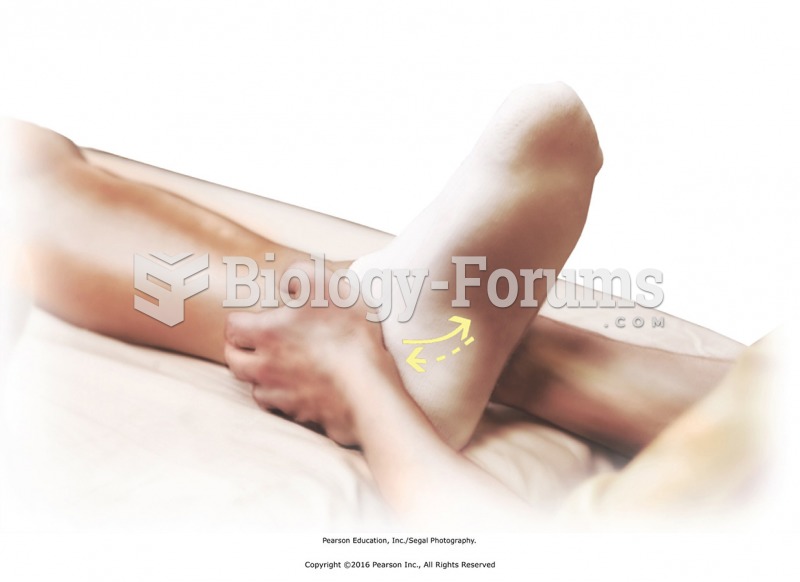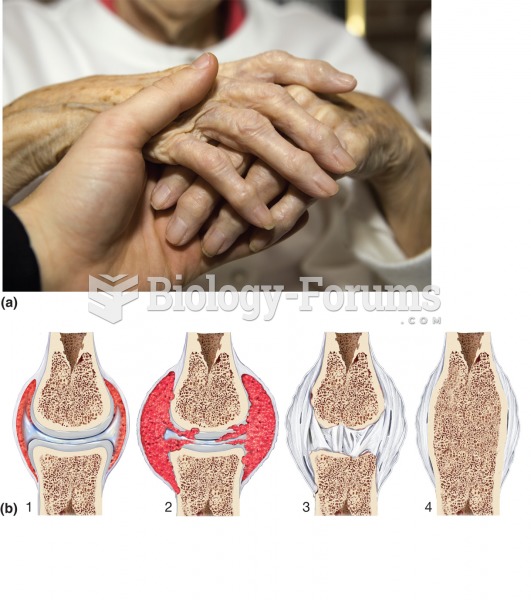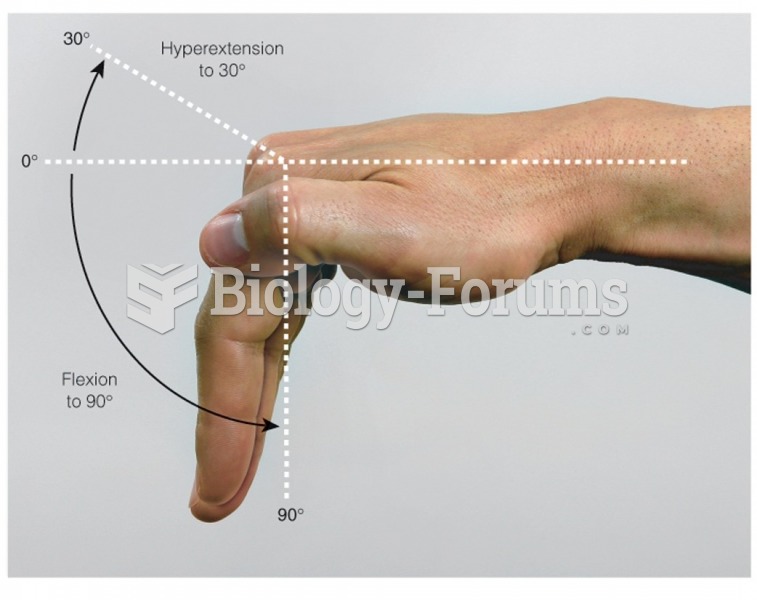|
|
|
Although the Roman numeral for the number 4 has always been taught to have been "IV," according to historians, the ancient Romans probably used "IIII" most of the time. This is partially backed up by the fact that early grandfather clocks displayed IIII for the number 4 instead of IV. Early clockmakers apparently thought that the IIII balanced out the VIII (used for the number 8) on the clock face and that it just looked better.
Cancer has been around as long as humankind, but only in the second half of the twentieth century did the number of cancer cases explode.
If all the neurons in the human body were lined up, they would stretch more than 600 miles.
Human stomach acid is strong enough to dissolve small pieces of metal such as razor blades or staples.
Many of the drugs used by neuroscientists are derived from toxic plants and venomous animals (such as snakes, spiders, snails, and puffer fish).
 Palpating the thyroid gland from behind the patient is a most effective way of assessing the gland f
Palpating the thyroid gland from behind the patient is a most effective way of assessing the gland f
 Mobilize the ankle. Place the heels of the hands just below the ankle bones, with fingers pointing ...
Mobilize the ankle. Place the heels of the hands just below the ankle bones, with fingers pointing ...





